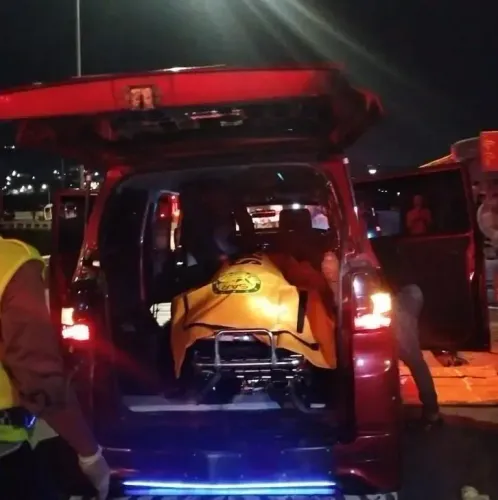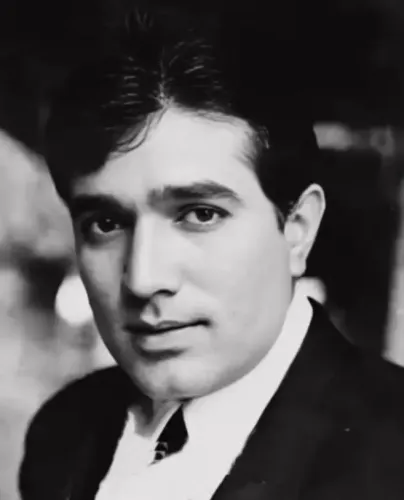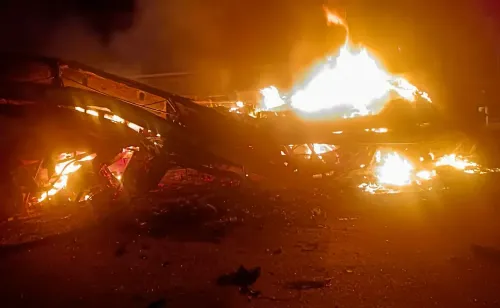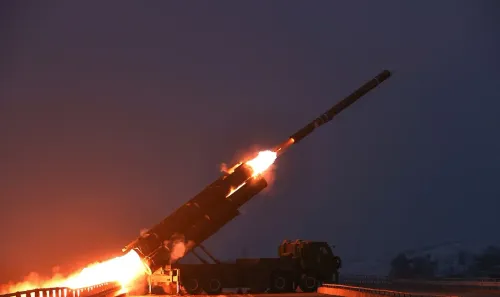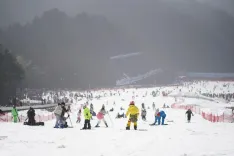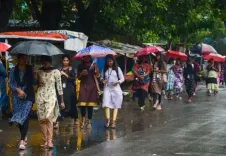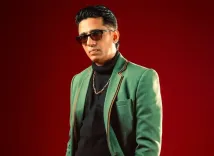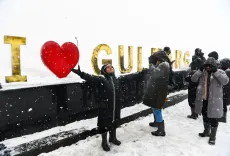Did the Supreme Court Challenge a Controversial Cartoon Depicting PM Modi and RSS?
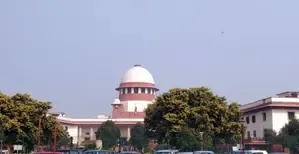
Synopsis
Key Takeaways
- Supreme Court scrutinizes social media satire.
- Cartoonist faces legal challenges for provocative content.
- Freedom of speech has limits, especially concerning religion.
- Social harmony is a priority in legal assessments.
- Artists must consider the impact of their work.
New Delhi, July 14 (NationPress) The Supreme Court on Monday raised objections to a social media post created by a cartoonist from Madhya Pradesh, which portrayed Prime Minister Narendra Modi and the Rashtriya Swayamsevak Sangh (RSS) in an “undignified manner”.
The caricature illustrated an RSS member with khaki shorts lowered, while the Prime Minister appeared to administer an injection to the exposed individual. This image was accompanied by a controversial caption referencing “derogatory lines involving Lord Shiva” and the “caste census”.
During the hearing, a Bench comprising Justices Sudhanshu Dhulia and Aravind Kumar criticized the actions of cartoonist Hemant Malviya as “inflammatory” and “immature.” The Justice Dhulia-led Bench was addressing an anticipatory bail plea from Malviya, who faced charges from the MP Police for allegedly sharing “indecent” social media content.
The apex court instructed advocate Vrinda Grover, representing Malviya, to confirm if he would agree to delete the post. In response, Grover indicated that the petitioner was amenable to removing the contentious post and clarifying that he did not support the objectionable remarks. Justice Dhulia remarked, “The comedians, cartoonists, etc., should reflect on their conduct!”
When Grover sought interim protection from arrest, the apex court declined to issue any orders but scheduled the case for further hearing on Tuesday. Additional Solicitor General (ASG) KM Natraj, representing the Madhya Pradesh government, argued that the controversial post was causing social unrest and that similar incidents across the nation were leading to a breakdown of law and order.
Earlier, the Madhya Pradesh High Court denied Malviya relief, noting that such content could disrupt social harmony and that he had “clearly overstepped the threshold of freedom of speech and expression.” In its ruling on July 3, a single-judge Bench led by Justice Subodh Abhyankar stated that the content, along with Malviya's endorsement and invitation for others to share and modify the cartoon, was in poor taste and constituted a deliberate act meant to offend sentiments.
Justice Abhyankar emphasized that the freedom of speech under Article 19(1)(a) of the Constitution does not extend to acts that insult religion or foster discord. He concluded that the caricature, coupled with Malviya's public endorsement, exceeded the limits of lawful satire and necessitated serious legal repercussions.
The Lasudia police station in Indore has filed a case against Malviya for offenses under Sections 196, 299, 302, 352, and 353(3) of the Bharatiya Nyaya Sanhita, 2023, and Section 67-A of the Information Technology Act, 2000.


